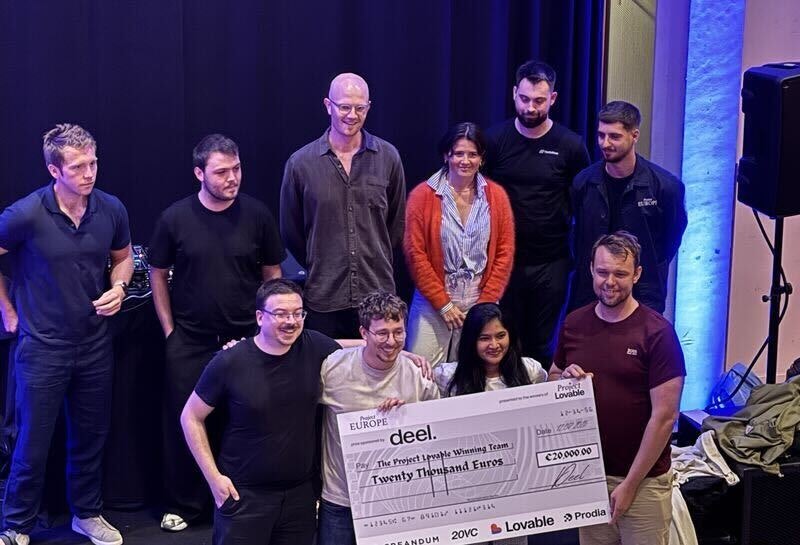In the past decade we’ve seen a vast global expansion of accelerator programmes. This expansion – which currently shows little sign of slowing – has been driven partly by investors seeking to emulate the obvious success of early entrants like YCombinator, and also partly by a public sector keen to expand their toolbox for boosting employment and economic regeneration. Increasing numbers are also being set up by universities which have belatedly realised the inadequacy of offerings from their business schools and technology transfer offices to busy entrepreneurs. However, the largest impetus by far has come from corporates, who have turned to startups as a means of gaining exposure to innovation in the face of their own lack of nimbleness. (In the words of one corporate innovation manager: “Working with startups allows us to play in the space of the disruptor without being disrupted ourselves”).
One consequence of this growth has been increased competition between programmes for good quality dealflow, which has in turn led to greater differentiation. Whereas early accelerators were broadly open to ‘all things digital’, entrepreneurs now have vastly greater options, including specialist programmes focussing on eye care, cybersecurity, marine technology, aerospace, agriculture, and numerous other industries.
Another consequence has been a flourishing diversity of business models. Early models were a relatively straightforward exchange of services and cash for equity – YCombinator’s standard offer is $120,000 for 7% – but new entrants have changed the norms. In the UK, there are now dozens of programmes which do not take any equity at all, surviving instead on public funding or corporate sponsorship of some kind. (Though, in some cases, the accelerators look like startups themselves, in that they are also organisations searching for a sustainable business model.)
In some cases, the accelerators look like startups themselves, in that they are also organisations searching for a sustainable business model
In theory, this is all beneficial for startups. Whereas most accelerators want to be highly selective, in many places it is now the entrepreneurs that can be more choosy. Competition between accelerators should force programmes to raise standards, while specialisation should provide startups with more focused support and more relevant connections.
In practice, it remains to be seen whether the benefits of specialisation, for instance, come at the expense of reduced peer learning and collaboration. Changes in funding models also beg the question of what success really looks like for programmes, and how closely aligned this is with entrepreneurs’ interests. (For instance, a publicly-funded programme might offer services for free in the hope of creating startups which will ultimately boost the local economy – but what if it is in the startup’s best interests to relocate to Silicon Valley or Stockholm, say?)
Moreover, competition really only increases standards if startups are able to make well-informed comparisons, which are currently difficult. There are some accelerator rankings in the US, but none yet for the EU.
So how might the field evolve? Where accelerators go from here depends largely on how funders behave, given that many current models seem precarious.
Startup support will clearly remain a policy goal for many local and national governments. Whether this translates into ongoing public funding for accelerators depends largely on establishing a better evidence base for their impact – not only in terms of the benefits to participating startups but also the spillover benefits for the broader ecosystems in which they are situated. Understanding the cost-effectiveness of this support in comparison with numerous other options (e.g. grants, business networks, mentoring, innovation vouchers, tax credits, etc.) is also important.
Some large companies… do not seem to have a clear idea why they are running one at all, other than to keep up with the competition
Some large companies clearly fund accelerators in the hope of prompting internal cultural change as much as for solving specific problems or generating new business lines (others, to be frank, do not seem to have a clear idea why they are running one at all, other than to keep up with the competition). The expected benefits may be quite diffuse and difficult to measure, which invariably means that they are subject to fashion and executive whim.
The next few years will undoubtedly see many firms re-evaluate their strategies, resulting in the consolidation or outsourcing of many corporate accelerators. In parallel there may also be a shift towards other innovation mechanisms, such as greater use of challenge prizes to solve specific problems, deeper focus on fixing the challenges of innovative procurement, and more ‘innovation outposts’ – observation stations outside an organisation’s ‘home’ ecosystem which help spot trends and extend reach.
New hybrids will undoubtedly continue to emerge, blurring the lines between accelerators, incubators, co-working spaces, investors, consultancies, ‘startup studios’, mentoring networks and other forms of support. We’ll likely see further diversification to serve specific groups – not only based on industrial sectors, but focused on operational niches such as how to work with charities and NGOs, or around founder characteristics. We may also see a sharper focus on programmes directed towards specific outcomes – such as rapid customer-building in anticipation of sale.
If we can disentangle what types of support really add value to which types of firm, it may be possible for more of this to be delivered online via ‘virtual’ accelerators (some of which exist already), which could prove more economically viable.
One thing remains certain: with many new entrants and new business models, the accelerator space will keep evolving rapidly.



